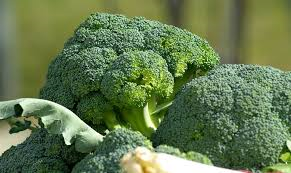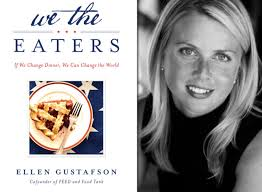Author: Ellen Gustafson
Genre: Non-fiction
Rating: ***
What’s it about? The book goes into all the ways the food industry is destroying not only nutrition and people’s general health but also its impacts politically. There was a lot of great information about ways “we the eaters” can change the world by fighting against the big companies such as Monsanto and Cargill and buy more organic and whole foods. A lot of what the author is saying makes sense, but only in a vacuum. In the real world, it’s mostly just an unrealistic expectation of consumers. Nearly no one has time for (or even wants to) go out of their way to buy organic, grass-fed beef for their burger every single time. Nor do they care if their eggs were from free-range chickens or if their cheese was produced locally.
This isn’t to say supporting local farmers is bad…of course it’s great. And I’m not saying people who do care about that stuff are wrong. I’m glad those people exist, and I commend them. But on a consistent basis, the plan the author lays out is essentially impossible to accomplish due to economics. Small farmers are being beat out by big farmers because of economies of scale and the bottom line. Subsidies for crops such as corn are certainly a big factor too (which I disagree with), but not the main reason.
She provides many anecdotes that are eye-opening and interesting, but not all are logical. For example, she talks about how people overeat sugar because it blocks the signal in our brain that we’ve had enough. She then suggests people never overeat healthy food such as broccoli because “When we eat healthy food, we tend to eat enough and stop.” Or…maybe because no one is going to be eating three pounds of broccoli for a meal because that’s just a ridiculous amount of food, in general, to ingest. There’s only about 50 calories in a serving of broccoli, so unless you’re eating seven servings of broccoli in one meal, you’re definitely not going to feel full from it, but it has nothing to do with your brain telling you it’s full.

Also, the idea that Gatorade and other sports drinks are “designed for adults who are elite athletes” is a ridiculous statement. You certainly don’t have to be an elite athlete to be drinking Gatorade. Sure, it has a lot of sugar, and drinking a lot of water is best, but these drinks aren’t inherently dangerous to consume for people who aren’t running a 5K every week.
How did you hear about it? I received it for free while at Lehigh University from someone at Rodale.
Closing comment: It would be wrong for me to say this book is bad, because it clearly isn’t. I actually enjoyed reading it for the author’s perspective, but her rigid thinking just isn’t going to fly with most people, and the lack of stress on the economics of the situation makes me skeptical of its feasibility.
Contributor:  Austin Vitelli. Austin is a rising senior at Lehigh University with a major in Journalism and a minor in Economics. He is a writer and managing editor for Lehigh’s student-run newspaper, The Brown and White. Check out his website at austinvitelli.com.
Austin Vitelli. Austin is a rising senior at Lehigh University with a major in Journalism and a minor in Economics. He is a writer and managing editor for Lehigh’s student-run newspaper, The Brown and White. Check out his website at austinvitelli.com.
Have you read something good? Want to talk about it?
Consider being a contributor to What’s That Book.
Email Book Club Mom at bvitelli2009@gmail.com for information.
Thanks for visiting – come back soon!





You must be logged in to post a comment.